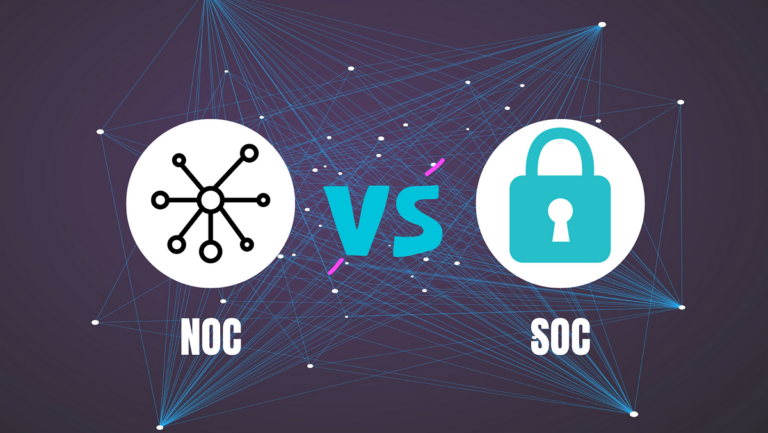Data breaches are no longer a phenomenon that only affects large corporations. Small businesses are increasingly finding themselves in the crosshairs of cybercriminals, often due to weaker defenses and a false belief that they won’t be targeted. But these breaches come with serious consequences, ranging from immediate financial losses to long-term damage to reputation and trust.
This guide breaks down the impacts of data breaches on small businesses with a focus on actionable insights to help you strengthen your cybersecurity.
What is a Data Breach?
A data breach occurs when sensitive, confidential, or protected information is accessed, disclosed, or stolen without authorization. This may involve customer data such as credit card numbers, employee information, intellectual property, and more. Breaches commonly result from:
- Human error (e.g., sending sensitive data to the wrong email)
- Malicious attackers (e.g., hackers using spyware or phishing)
- System vulnerabilities (e.g., unpatched software)
For a small business, the fallout from even a minor breach can be devastating.
The True Costs of a Data Breach
The impacts of a data breach extend far beyond immediate financial losses. Here’s how these breaches can affect your small business in tangible and intangible ways:
1. Financial Consequences
Small businesses often operate on tight budgets, so the costs of a data breach can hit particularly hard. According to IBM’s recent Cost of a Data Breach Report, the average breach costs $4.88 million globally—but even a fraction of this can push a small business into financial distress.
Direct Costs Include:
- Hiring cybersecurity professionals to investigate and remediate the breach
- Legal fees associated with compliance violations or lawsuits
- Providing credit monitoring or identity theft protection for affected customers
Indirect Costs Include:
- Lost revenue due to operational downtime
- Increased spending on cybersecurity upgrades and insurance
- Long-term loss of trust from customers
2. Reputational Damage
Small businesses thrive on their relationships with customers, but a data breach can severely erode trust. Once customer data is compromised, it can spark fears about doing business with you in the future.
Consider This:
- Trust can take years to rebuild but only moments to lose.
- Partners and suppliers may become wary of working with you, perceiving your business as a risky link in their supply chain.
Negative reviews and social media backlash can amplify the reputational damage, further alienating potential clients.
3. Legal and Compliance Issues
With regulations like the GDPR (General Data Protection Regulation) and CCPA (California Consumer Privacy Act), businesses are now held to rigorous data protection standards. Non-compliance can lead to hefty fines and penalties.
- Under the GDPR, fines can reach €20 million or 4% of your annual revenue, whichever is higher.
- The CCPA fines up to $7,500 per incident—this can quickly accumulate depending on the number of affected customers.
Additionally, businesses may face lawsuits filed by affected parties, which further compounds legal and financial burdens.
4. Operational Downtime
When a data breach occurs, time and resources are diverted toward containment and recovery. This operational disruption can impact productivity, delay projects, and affect customer service. For instance, downtime during a breach could cost businesses an average of $88,000 per hour according to Veeam’s 2022 Data Protection Trends Report.
5. Decline in Employee Morale
The aftermath of a data breach can have a human cost—your employees. They may experience guilt or anxiety if the breach originated from within the organization. Morale may also take a hit as attention shifts to addressing the crisis, leading to burnout or higher turnover.
Why Small Businesses Are Especially Vulnerable
It’s a common misconception that cybercriminals only target large enterprises. Here’s why small businesses are more susceptible:
- Weaker Security Measures: Many small businesses lack robust firewalls, intrusion detection systems, or regular system updates.
- Fewer Resources: Budgets for cybersecurity tools or training are often limited.
- Valuable Data: Despite being smaller, businesses store sensitive customer information, making them attractive targets.
Preventing Cybersecurity Breaches in Small Businesses
While you can’t control the actions of cybercriminals, you can reduce your vulnerability. Here are best practices to strengthen your small business cybersecurity:
1. Train Your Team
Provide regular training on topics like password security, identifying phishing emails, and safe data handling. Employees are often the first line of defense.
2. Deploy Protective Tools
Use cybersecurity solutions such as firewalls, antivirus software, encryption, and multi-factor authentication (MFA). These tools create multiple layers of protection.
3. Keep Everything Up to Date
Hackers exploit outdated systems and software. Regular system updates and patches are critical to staying secure.
4. Back Up Your Data
Schedule automated backups so you have copies of critical data in case of a breach. Store backups in secure, off-site locations.
5. Engage in Risk Assessments
Establish a habit of conducting regular security audits. Identify vulnerabilities before they can be exploited.
6. Consider Cyber Insurance
While preventive measures are vital, a cybersecurity insurance policy can help cover recovery costs in case of a breach.
Building a Culture of Security
For small businesses, cybersecurity isn’t just about technology—it’s about fostering a mindset of vigilance. Actively involve your team in understanding its importance and encourage a culture of shared responsibility.
Aligning with Your Bottom Line
By investing in small business cybersecurity measures, you’re not merely avoiding data breaches—you’re protecting your brand, customer relationships, and operational continuity. Cybersecurity isn’t just a technical necessity; it’s a business imperative.
Partner with Experts to Stay Ahead
Tackling cybersecurity challenges as a small business doesn’t have to feel overwhelming. With resources and tools available for businesses of any size, you can take steps today to protect your operations and data.
If you’re ready to safeguard your business and learn more about cybersecurity solutions, reach out to us now. Together, we’ll build a stronger, more secure foundation for your future.
Protect your small business from the REAL impacts of data breaches. Strengthen your cybersecurity today!










